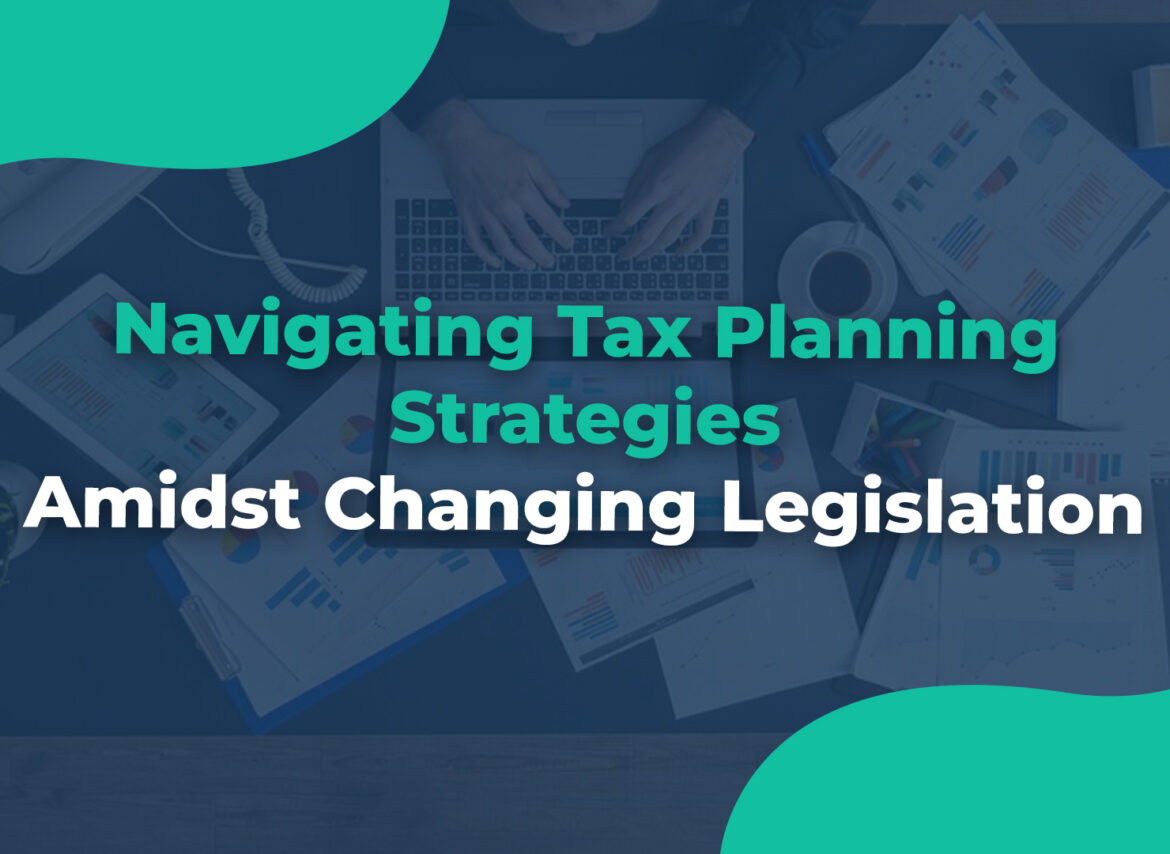The evolving landscape of tax law continues to shape tax planning strategies for businesses and individuals alike. Recent discussions have centered on the potential expiration of provisions from the Tax Cuts and Jobs Act (TCJA) and the possibility of new tax legislation. The expiration of TCJA provisions would generally result in higher taxes for certain individual and pass-through business taxpayers. On the other hand, former President Donald Trump’s campaign messaging indicated an intention to extend these provisions.

Tax planning, however, extends beyond legislative changes and hinges on the unique goals of each business. Strategies often toggle between managing current-year income and future taxable income.
For instance, businesses anticipating higher future tax rates due to the expiration of TCJA provisions may aim to accelerate revenue into 2024 and defer deductions to later years. This strategy would be particularly relevant if no new tax legislation is expected by 2025 or 2026. Conversely, if businesses expect favorable tax legislation extending TCJA provisions, they may prioritize accelerating deductions into 2024 and deferring revenue to future years.
Given the uncertainty of future tax laws, businesses must align their tax planning strategies with anticipated legislative changes and their operational goals.
Key Considerations for Businesses
One effective way to manage taxable income is through changes in tax accounting methods. These methods allow taxpayers to switch from one permissible accounting method to another, often providing a “catch-up” adjustment to align lifetime taxable income. This adjustment enables businesses to accelerate or defer taxable income between tax years. Below are notable tax accounting methods to consider:
Accounting Methods to Accelerate Deductions and Defer Revenue
- Cash Method of Accounting – Small businesses and eligible taxpayers can adopt the cash method, which generally defers accrual basis revenue and accelerates cash basis deductions.
- Advance Payments – Accrual basis taxpayers may defer up to one year of revenue from advance payments.
- Bad Debt – Deduct totally or partially worthless receivables.
- Prepaid Expenses – Accelerate deductions for prepaid expenses with a benefit period of 12 months or less, such as insurance or taxes.
- Bonus Compensation Accruals – Deduct bonus accruals in the year accrued if paid within two and a half months after year-end.
- Accrued Expenses – Use the recurring item exception to deduct accrued expenses paid within eight and a half months after year-end.
- Inventories – Deduct inventory carried at the lower of cost or market (LCM) or for subnormal goods at year-end.
- Depreciation – Place construction-in-progress assets into service to claim depreciation or bonus depreciation.
- Interest Expense – Capitalize interest on acquired or depreciable property when allowed under Sections 263A and 266 to manage Section 163(j) limits on interest expense deductions.
Accounting Methods to Defer Deductions and Accelerate Revenue
- Depreciation – Opt out of bonus depreciation in favor of slower depreciation methods or longer recovery periods.
- Overall Method of Accounting – Switch from the cash method to the accrual method to accelerate taxable income.
- Advance Payments – Adopt the full-inclusion method to recognize advance payments as taxable income in the year received.
- Prepaid Payment Liabilities – Amortize prepaid expenses, such as insurance, over the contract’s life rather than deducting them in the year paid.
- Bonus Accruals – Pay accrued bonus compensation liabilities later than two and a half months after year-end to deduct them in the year paid.
- Accrued Expenses – Delay payment of accrued expenses beyond eight and a half months after year-end to defer deductions.
Conclusion
Tax planning is a dynamic process that requires businesses to evaluate both legislative changes and operational objectives. By leveraging permissible accounting methods and adapting strategies to align with potential tax law changes, businesses can optimize their tax positions and prepare for an uncertain future. Whether anticipating favorable extensions of TCJA provisions or higher tax rates after their expiration, proactive planning is key to achieving financial goals.






